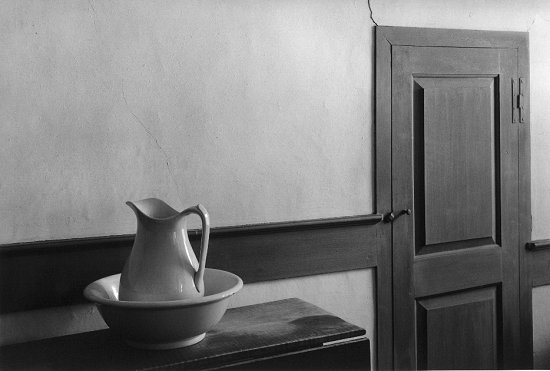On Wabi-Sabi Weekends, I post excerpts from my book, Simply Imperfect: Revisiting the Wabi-Sabi House.
Zen’s seven ruling principles are wabi-sabi’s foundation.
Stiff, frozen symmetry and artificial perfection are imagination’s nemesis. More human than godlike, asymmetry is loose and spontaneous.
Simplicity (Kanso)
Zen is sparse, fresh and neat.
Zen asks us to reduce to “the pith of essence,” down to the essentials.
Naturalness (Shizen)
Zen is without pretense or self-consciousness.
Within Zen lies a deep reserve, a mysterious, shadowy darkness. The hint of soft moonlight through a skylight would be yugen.
 Freedom from Worldly Attachments (Datsuzoku)
Freedom from Worldly Attachments (Datsuzoku)
The Buddha taught non-attachment to life, things and rules. “It is not a strong bond, say the wise, that is made of iron, wood, or hemp. Far greater an attachment than that is the longing for jewels and ornaments, children and wives,” he said.
Zen embraces the quiet calm of dawn, dusk, late autumn and early spring.






